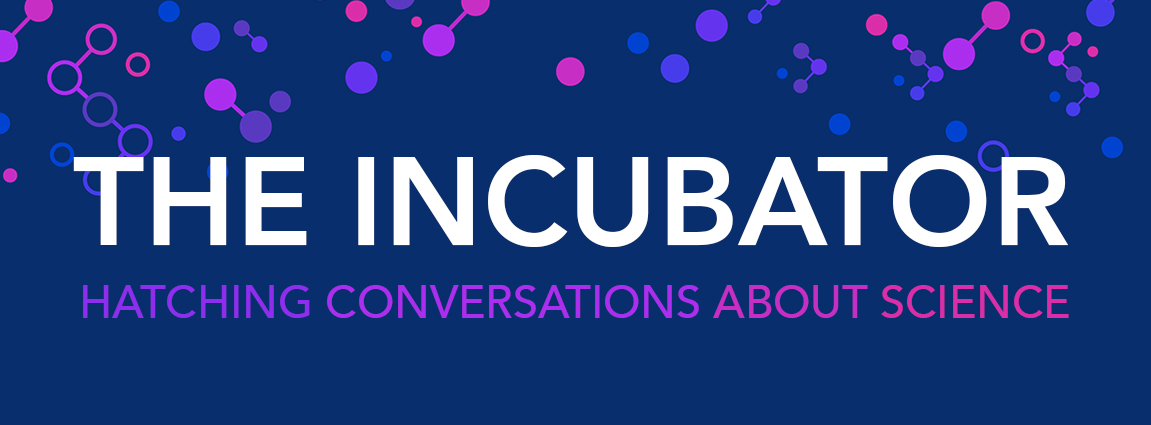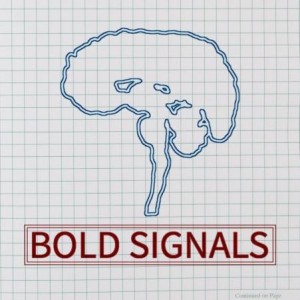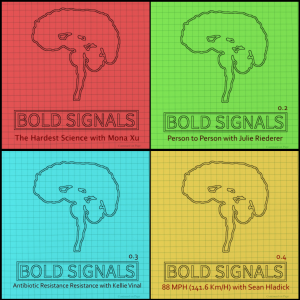Four Things I Learned by Starting a Science Podcast
By John Borghi
Last week, I released the first official episode of Bold Signals– a podcast where I attempt to capture the human side of science. In each episode, I interview either a scientist about the lived experience of doing science or a non-scientist about how they experience science in their everyday life. If this sounds interesting, you can stream the podcast on SoundCloud or download it through iTunes. A new episode will come out every Wednesday this summer, with a second season starting sometime in the Fall.
I started the podcast because I wanted to reveal the struggles and frustrations that exist between the lines of the results and discussion sections of scientific articles. But, even in the short time I’ve been working on Bold Signals, I’ve learned a whole lot about how science is produced, applied, and communicated. Here are the bullet points:
1. Making a podcast isn’t so difficult (except when it is)
On some level, recording a podcast is as simple as plugging in some microphones and talking with some neat people for about an hour. Before I conducted the first interview, I spent a long time researching recording equipment, editing software, and hosting options. I interrogated experienced podcasters, made charts, and then, ultimately, just chose the cheapest options for each.
If you’ve listened to any of the four practice episodes, you’ve probably noticed more than one instance of my inexperience handling the technical side of podcasting- they’re rife with particularly poppy “p” sounds, inconsistent audio levels, and perplexing editing choices. One of my major goals as we proceed though the first season is to (incrementally) improve the production. As I gain more experience navigating the intricacies of GarageBand, I’m hoping the podcast will start to resemble my original vision and aesthetic a bit more.
2. Scientists are eager to talk (though their training often prevents them from creating easy narratives)
After getting the necessary hardware and software together, I put out the call to some colleagues and friends to conduct some practice interviews. If you’ve heard these interviews, you’ll know that I did not come to the podcast with a lot of experience as an interviewer. The fact that these interviews have seen the light of day is entirely due to the fantastic group of people who jumped at the chance to talk about science. At the time of this writing, I’ve had so many people volunteer that I’ve already recorded the 80% of the first official season of the podcast- which doesn’t mean you shouldn’t volunteer, you totally should.
Perhaps it has just been my limited sample (n=12), but I’ve noticed a significant (p<0.05) trend towards self-deprecation in the people I’ve interviewed thus far. Almost to the person, the guests on Bold Signals have dismissed the things they do perfectly normal- often describing their work with amazing technologies and bleeding edge science as just a series of failures that slowly and incrementally lead to some progress. My (completely unfalsifiable) hypothesis is that this is due to the training they (and I) have received- the formal and informal instruction to be critical, analytical, and open to alternative explanations.
3. Non-scientists are eager to listen (but they are often intimidated or unsure where to find reputable scientific resources)
From juggernauts like Radiolab to lesser known to more inside baseball podcasts like This Week in Virology, if you’re looking for a science podcast, you have some options. Actually, you have lots and lots of options. And, as much as it pains me to say this as a neophyte podcaster, podcasts are really just a tiny portion of the science and science communication landscape. Even for experienced scientists, sifting through the imbroglio of science-related websites, television channels, documentary films, books, magazines, and articles is almost impossible. For non-scientists (and, if we’re honest, also for scientists), navigating through this morass is complicated by both perceptions that science is intimidatingly complex, difficult, or somehow separate from the everyday world and also the proliferation of dramatized headlines, bad science, and pseudoscience as marketing.
I’ve conducted two interviews with non-scientists so far; one was released as a practice episode, the other will be released next week. In both, the guest expressed a similar sentiment: It’s hard to know where to find interesting but also accurate scientific information and scientists seem generally unapproachable. Addressing the first part isn’t simple. Incorporating scientific rigor and robust analyses into something with broad appeal is far from easy. I’ve put a lot of thought into how to make Bold Signals interesting to listeners and I haven’t come to any easy answers. But I’ve found it useful to remember a very basic and very general piece of advice I was once given: Know your audience.
I’ve had to practice a lot of theory of mind awhile putting together the podcast. Instead of making a thing for an audience that I, in the depths of my scientific arrogance and cynicism, think should exist, I’ve been trying to make a thing for the audience that actually does exist.
4. There is a big difference between the results and discussion sections (except when there isn’t).
As a person who works in a science library, I am fascinated by how research scientists read scientific papers. As my own scientific training progressed, I transitioned from focusing mostly on the introduction and discussion sections to focusing almost exclusively on the methods and results sections almost. This, I think, is both common and reflective of two broad forms of science communication- relaying the context of a particular study or research program versus describing the nuts and bolts of how a study was conducted. To make an overly broad assertion, I think many scientists and science communicators assume that stories with the most popular appeal come from the former and that stories about the later would be rife with drudgery, jargon, and technical minutiae. In the episodes of Bold Signals I’ve recorded so far, I’ve found these assumptions to be generally incorrect.
Though my sample is obviously quite limited, both of the non-scientists I interviewed expressed how their favorite recent example of science fiction, Andy Weir’s The Martian, is (mostly) about the day-to-day trials and tribulations of a scientist (who happens to be stranded on Mars). Describing the everyday experience of doing science doesn’t necessarily mean describing the interminable steps involved in pre-processing an fMRI data set, it just means looking for the interesting or important stories among the quotidian- which is what we should all be doing anyway.
This week’s episode features an extended interview with Beth Waters, the lead scientists of Rockefeller University’s Science Outreach Program. Future episodes include interviews with graduate students, adjunct professors, and researchers working across biomedical science. You can follow the Bold Signals on Twitter and Tumblr and subscribe on iTunes or Stitcher.
Since Bold Signals is about people, I’m eager to hear any questions, comments, critiques, or concerns about either what I’ve learned by doing the podcast or the podcast itself.
Thanks for listening!



